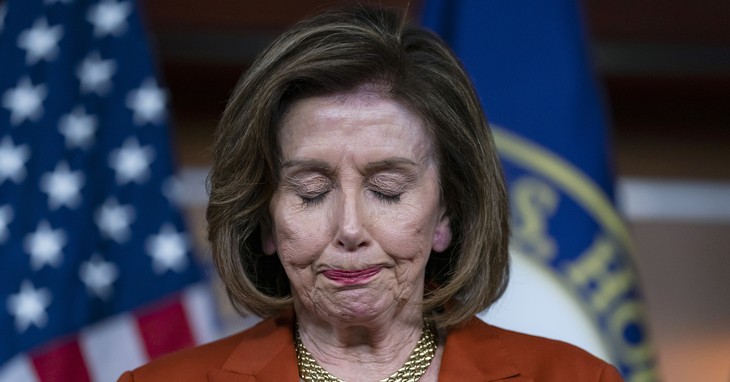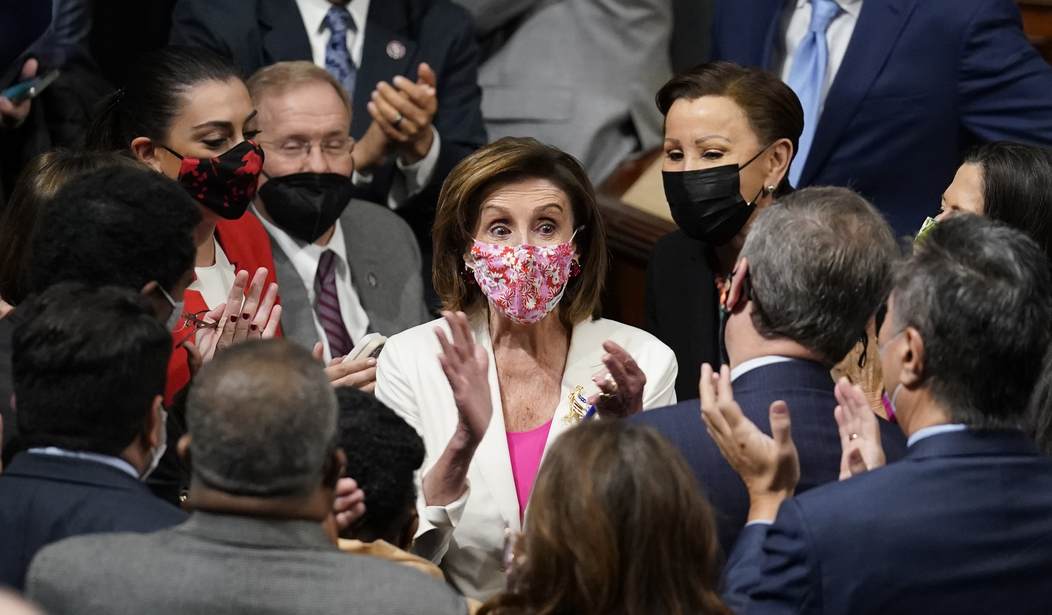The Democratic Party has had a pretty significant shift in its talking points in the wake of the Dobbs decision from the Supreme Court. With Roe v. Wade overturned and the issue of regulating abortion returned to the voters, Democrats have lost one of the central sacraments of their political faith.
It’s pretty clear that Democrats think the issue will be a motivator for voters in the November midterms, pointing to recent polling on the issue, and as Axios reports, it’s fast becoming the biggest plank in Democratic candidates’ platforms, even overtaking January 6 as a key issue for many candidates’ sites.
Axios got a first look at websites that Democrats’ House and Senate campaign arms launched Monday — less than 72 hours after the Supreme Court ruling — blasting GOP candidates’ abortion records.
Likewise, you have folks like S.E. Cupp on CNN proclaiming that the end of Roe is going to signal the end of the GOP.
CNN's @secupp on Dobbs: "It's hard to imagine the Republican Party surviving this. Between anti-abortion, anti-LGBTQ, book banning, anti-democracy….add all of the regressive [BS], garbage…" there's no future generation. It's all GOP "shrinking and condensing." pic.twitter.com/SjdwxwEC4S
— Tim Graham (@TimJGraham) June 27, 2022
I don’t know if it’s really that hard to imagine the Republican Party surviving this or if it’s the lack of imagination from someone who can only parrot the conventional wisdom from the DC media bubble, but there is ample data out there to suggest that the end of the Republican Party really isn’t on the horizon. For example, just yesterday the Associated Press reported that more than one million voters have switched their party affiliation to the Republican Party.
More than 1 million voters across 43 states have switched to the Republican Party over the last year, according to voter registration data analyzed by The Associated Press. The previously unreported number reflects a phenomenon that is playing out in virtually every region of the country — Democratic and Republican states along with cities and small towns — in the period since President Joe Biden replaced former President Donald Trump.
But nowhere is the shift more pronounced — and dangerous for Democrats — than in the suburbs, where well-educated swing voters who turned against Trump’s Republican Party in recent years appear to be swinging back. Over the last year, far more people are switching to the GOP across suburban counties from Denver to Atlanta and Pittsburgh and Cleveland. Republicans also gained ground in counties around medium-size cities such as Harrisburg, Pennsylvania; Raleigh, North Carolina; Augusta, Georgia; and Des Moines, Iowa.
This news does not seem to be breaking through to the Democrats all that much, but there are signs some of them understand they are still in as much trouble now as they were before Dobbs. Via POLITICO:
Less than a year ago, a GOP Senate victory in deep blue Washington state would have been unthinkable. But now, Democrats are spending millions on advertising in several once-reliable Democratic strongholds, including Washington, as Republicans build national momentum and push for new Senate pickups.
There’s a similar panic in Colorado, where Tuesday’s GOP Senate primary has also drawn millions of dollars in Democratic-funded ads to boost a far-right candidate, a massive last-ditch campaign to keep a moderate Republican off the ballot this fall.

In the fallout from last week’s landmark decision, Nancy Pelosi is signaling in the strongest of terms that she will be pushing ahead on codifying Roe at the federal level while blasting the Supreme Court as “extremist.” This follows Chuck Schumer twice putting the most extreme abortion bill in history before the Senate, forcing Democrats to go on the record as supporting abortion up to the point of a child fully exiting the birth canal.
This issue is a major distraction from the issues voters are really focused on right now. Suburban women, as much as they may care about the right to an abortion, also worry about issues like crime and inflation, because those issues are far more likely to affect their families and, in particular, their children. A recent CBS/YouGov poll seems to support that notion, too.
YouGov poll: Highest and lowest priority for voters. Economy and inflation remain on top. Jan 6. is low and COVID has really gone down the list. pic.twitter.com/PM9ldml2Nh
— Zaid Jilani (@ZaidJilani) June 27, 2022
The top five issues that voters see as the highest priority are Inflation (82 percent see it as high priority), the economy (80 percent), crime (58 percent), gun policy (57 percent), and immigration (45 percent). Abortion (42 percent) is in sixth place there, but that’s a huge drop from the 80-82 percent high priority stance on inflation and the economy. More people care about the issues a lot closer to home than abortion.
That 42 percent who see abortion as a high-priority issue, by the way, had more than likely already decided how they would vote. The passionate single-issue voter focused on that issue are already firmly Republican or Democratic and very much unlikely to change their vote before or after Dobbs.
Also, keep in mind that the flash polling we’ve seen and the issue polling we’ll see for the next week or two will suffer from proximity bias. After two or three weeks, voters will shift back to the most immediate issues before them, and for many, abortion won’t be on the list, especially when they realize that, contrary to media reports and Democrats’ freakout, they still have access to birth control and even emergency contraceptives like Plan B, and that no one is actually pushing to outlaw abortion in the case of ectopic pregnancies and pregnancies where viability outside the womb is medically impossible.
Ultimately, it’s difficult to imagine that abortion overtakes economic issues and quality of life issues like crime. Those are issues that suburban women will ultimately use to decide how to vote in November.














Join the conversation as a VIP Member